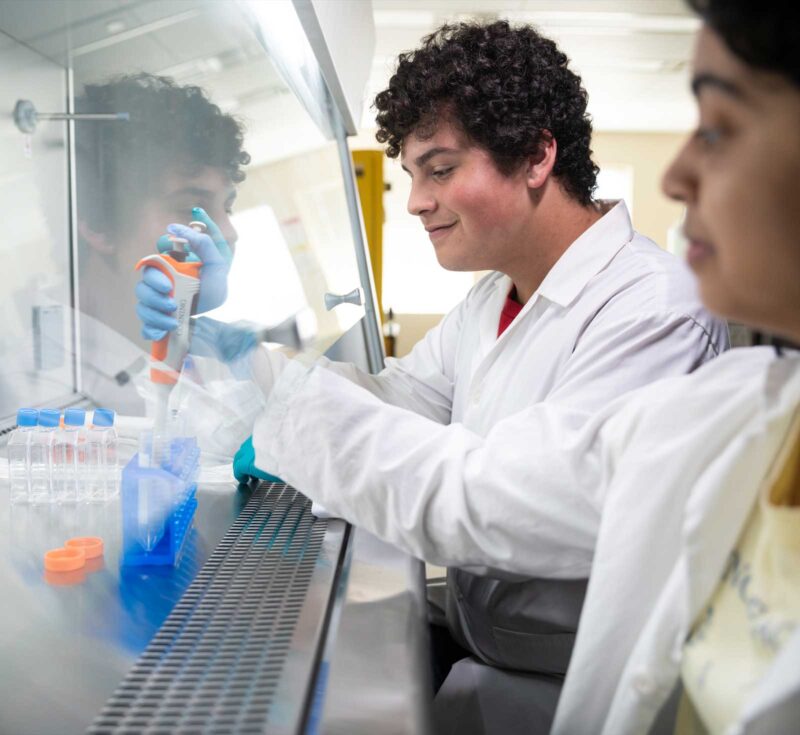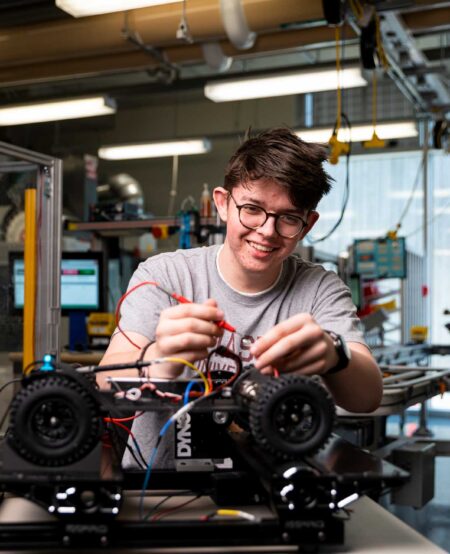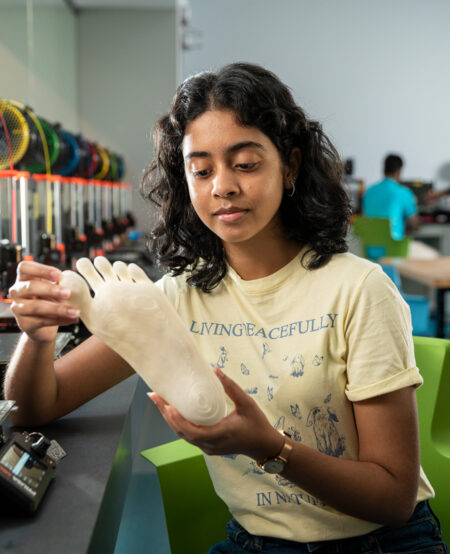- Length
- 4.5 years
- Degree
- Bachelor of Technology (Co-op Mandatory)
- Program
- Bachelor of Technology
- Options
Program highlights
Biotechnology is an interdisciplinary field merging basic science, applied science, and engineering. Study genetic engineering; cell biology, molecular biology, and microbiology; analytical instrumentation; and, bioprocessing. Within these disciplines, students learn about the latest research in immunology, virology, genomics, proteomics, and bioinformatics.
Multiple degrees
In 4.5 years, students graduate with a degree from McMaster University, an advanced diploma in Biotechnology and Certificate in Business from Mohawk College, and 12 months of co-op work experience.
Accredited Business Degree
The program also integrates core business and management skills and is an Accredited Business Degree. Read about ACBSP Accreditation here.
I see myself working in the environmental or agricultural technology sectors. I chose Biotechnology at McMaster because I thought it really demonstrated the perfect relationship between technology and the natural world.
Admission requirements


Careersand further studies
Sample careers:
- Chemist, Estee Lauder
- Inventory Control Analyst, Ventura Foods Canada
- Manager of Clinical Marketing, Mespere LifeSciences Inc.
Further study:
- MBiotech, University of Toronto
- MSc, Ontario Institute for Cancer Research, University of Toronto
- MASc, Biomedical Engineering, McMaster University
- MASc, Chemical Engineering, McMaster University
- MBA, DeGroote School of Business, McMaster University
Mobility opportunity supported by Erasmus+
- Undergraduate students in the Biotechnology and Automation programs can participate in a two-to-three-month project-based mobility in Almeria, supervised by a Spanish professor, earning either academic credit or co-op recognition. Learn more about the Almeria partnership.

Need moreinformation?
How to apply
Understand every step, from applying, to accepting your offer and joining us on campus!
W Booth School of Engineering Practice and Technology
We blend our focus between academic theory, engineering practice and understanding how to leverage technology to create solutions and produce value for society.


